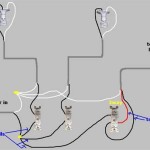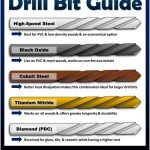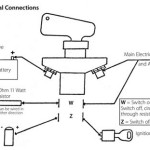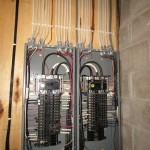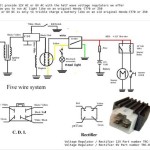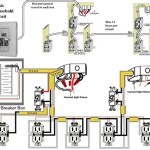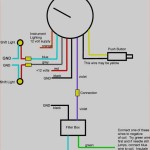OEM (Original Equipment Manufacturer) Automotive Wiring Connectors are crucial components that facilitate electrical connections between various electronic systems within a vehicle. They ensure reliable and secure power transmission, data exchange, and signal communication.
For instance, a multi-pin connector in the engine compartment connects the engine control unit to other modules, sensors, and actuators, enabling optimal engine performance through accurate data transmission and precise control of engine functions.
OEM Automotive Wiring Connectors play a vital role in the automotive industry by ensuring vehicle performance, reliability, and safety. They provide enhanced durability, resistance to harsh environmental conditions, and optimized electrical performance. The historical development of standardized connector designs, such as the USCAR (United States Council for Automotive Research) standards, has significantly improved compatibility and interoperability among different vehicle makes and models.
This article delves deeper into the key aspects of OEM Automotive Wiring Connectors, exploring their design, materials, manufacturing techniques, testing procedures, and quality control measures to ensure their exceptional performance in demanding automotive applications.
OEM Automotive Wiring Connectors are essential components that play a critical role in ensuring the performance, reliability, and safety of vehicles. Understanding their key aspects is crucial for a comprehensive understanding of these connectors and their significance in the automotive industry.
- Design: Compact, modular, and customizable designs for specific applications.
- Materials: High-quality materials like nylon, PBT, and PEEK for durability and resistance.
- Manufacturing: Precision molding, stamping, and assembly processes for reliability.
- Electrical Performance: Low contact resistance, high current carrying capacity, and signal integrity.
- Environmental Protection: Resistance to moisture, vibration, temperature extremes, and chemical exposure.
- Standardization: Adherence to industry standards like USCAR for compatibility and interoperability.
- Testing: Rigorous testing procedures to ensure performance and safety.
- Quality Control: Stringent quality measures throughout the manufacturing process.
These key aspects are interconnected and contribute to the overall effectiveness of OEM Automotive Wiring Connectors. Their durability ensures reliable operation in demanding automotive environments, while their electrical performance supports efficient power transmission and data exchange. Standardization enables compatibility across different vehicle makes and models, simplifying maintenance and repairs. Rigorous testing and quality control measures guarantee the safety and reliability of these connectors, making them essential components for modern vehicles.
Design
The design of OEM Automotive Wiring Connectors prioritizes compactness, modularity, and customization to meet specific application requirements. These aspects are crucial for optimizing performance, simplifying installation, and enhancing adaptability in various automotive systems.
- Compact Design: Compact connectors save valuable space within congested engine compartments and electrical distribution systems. They enable efficient packaging of multiple connections, reducing overall wiring harness size and weight.
- Modular Design: Modular connectors consist of interchangeable components that can be easily assembled and disassembled. This allows for flexible configurations, simplifies maintenance, and facilitates upgrades or repairs.
- Customizable Design: Connectors can be customized to suit specific requirements, such as the number of contacts, wire gauges, and housing materials. This customization ensures optimal performance and compatibility with different vehicle platforms.
- Application-Specific Design: Connectors are designed specifically for various automotive applications, such as engine management, body electronics, and safety systems. They incorporate unique features and configurations to meet the specific electrical, environmental, and performance demands of each application.
The compact, modular, and customizable designs of OEM Automotive Wiring Connectors contribute to their widespread adoption in the automotive industry. They enable efficient packaging, simplified installation, flexible configurations, and tailored solutions for diverse applications. These design aspects play a significant role in ensuring reliable and optimized performance of electrical systems in modern vehicles.
Materials
The selection of high-quality materials like nylon, PBT (polybutylene terephthalate), and PEEK (polyetheretherketone) plays a critical role in the durability and resistance of OEM Automotive Wiring Connectors. These materials possess exceptional properties that enable connectors to withstand the harsh operating conditions encountered in automotive applications.
Nylon is a lightweight and durable material with high tensile strength, making it suitable for use in connector housings. It offers good resistance to abrasion, chemicals, and heat, ensuring the longevity of connectors in demanding environments. PBT is another commonly used material known for its high strength, dimensional stability, and electrical insulation properties. It provides excellent resistance to heat, moisture, and chemicals, making it ideal for connectors in high-temperature and corrosive environments.
PEEK is an advanced thermoplastic with exceptional mechanical strength, chemical resistance, and thermal stability. It is often used in high-performance connectors that require superior durability and resistance to extreme temperatures, harsh chemicals, and mechanical stress. The use of these high-quality materials in OEM Automotive Wiring Connectors ensures their reliability and longevity in the challenging environment of modern vehicles.
For example, nylon connectors are commonly used in engine compartments due to their ability to withstand high temperatures and resist automotive fluids. PBT connectors are often employed in body electronics modules, where they provide protection against moisture and harsh environmental conditions. PEEK connectors find applications in high-power systems and under-the-hood components, where their exceptional durability and resistance to extreme temperatures are crucial.
Understanding the connection between materials and the performance of OEM Automotive Wiring Connectors is essential for selecting the right connectors for specific applications. By using high-quality materials, manufacturers can ensure that connectors meet the stringent requirements of the automotive industry, delivering reliable and durable performance over the lifespan of the vehicle.
Manufacturing
Precision molding, stamping, and assembly processes are critical components in the manufacturing of OEM Automotive Wiring Connectors, directly influencing their reliability and performance. These processes ensure the high-quality production of connectors that meet stringent automotive industry standards and deliver consistent performance throughout the vehicle’s lifespan.
Molding involves shaping molten plastic materials into precise connector housings and components. Advanced molding techniques, such as injection molding, enable the production of complex shapes with tight tolerances, ensuring a secure fit and proper alignment of electrical contacts. Stamping, on the other hand, is a metalworking process used to create terminals and other metal components with high precision and repeatability. It ensures the accurate formation of contact surfaces and the precise positioning of terminals within the connector.
The assembly process brings together the various components of the connector, including the housing, terminals, seals, and contacts. Automated assembly lines and robotics are employed to ensure precise alignment, proper crimping of terminals, and secure locking mechanisms. Stringent quality control measures are implemented at each stage of the manufacturing process, including automated optical inspection and electrical testing, to guarantee the reliability and performance of the final product.
Understanding the connection between precision manufacturing processes and the reliability of OEM Automotive Wiring Connectors is crucial for several reasons. Firstly, it highlights the importance of quality control and adherence to industry standards in the production of these critical components. Secondly, it emphasizes the need for continuous innovation and improvement in manufacturing techniques to meet the evolving demands of the automotive industry. Finally, it provides insights into the factors that contribute to the durability and performance of electrical systems in modern vehicles.
Electrical Performance
Electrical performance is paramount for OEM Automotive Wiring Connectors, as it directly influences the efficiency, reliability, and safety of electrical systems in vehicles. Three key aspects of electrical performance include low contact resistance, high current carrying capacity, and signal integrity, each playing a crucial role in ensuring optimal functionality.
- Contact Resistance: Low contact resistance is essential to minimize power loss and heat generation at the connection points. It ensures efficient transmission of electrical signals and prevents overheating, which can lead to premature connector failure.
- Current Carrying Capacity: The ability of connectors to carry high currents is crucial for powering electrical components and systems in vehicles. Proper current carrying capacity ensures that connectors can handle the electrical load without overheating or compromising safety.
- Signal Integrity: Maintaining signal integrity is vital for accurate data transmission and reliable communication between electronic modules. High-quality connectors minimize signal distortion and noise, ensuring the integrity of data signals and preventing errors or malfunctions.
These three aspects of electrical performance are interconnected and contribute to the overall reliability and efficiency of OEM Automotive Wiring Connectors. Low contact resistance reduces power loss and improves efficiency, high current carrying capacity ensures safe and reliable power distribution, and signal integrity guarantees accurate and error-free data transmission. By understanding and optimizing these electrical performance characteristics, manufacturers can design and produce connectors that meet the demanding requirements of modern automotive systems.
Environmental Protection
Environmental protection is paramount for OEM Automotive Wiring Connectors, as vehicles operate in diverse and often harsh conditions. Resistance to moisture, vibration, temperature extremes, and chemical exposure ensures that connectors maintain reliable performance and prevent electrical failures that could compromise vehicle safety and functionality.
Exposure to moisture can lead to corrosion, short circuits, and insulation breakdown, disrupting electrical signals and potentially causing fires. Automotive connectors must be sealed and protected against water ingress, especially in areas like engine compartments and underbody wiring harnesses. Vibration resistance is also crucial, as connectors are subjected to constant vibrations from engines, road surfaces, and other sources. Proper vibration damping and secure locking mechanisms prevent loose connections, electrical noise, and premature connector failure.
Temperature extremes encountered in automotive applications, from freezing cold to extreme heat, can affect the physical properties of connector materials. High-quality connectors use materials that can withstand these temperature variations without becoming brittle or losing their insulating properties. Additionally, resistance to chemical exposure is essential, as automotive connectors may come into contact with fuels, oils, and other chemicals that could degrade their performance. Proper material selection and protective coatings ensure that connectors remain intact and functional in these challenging environments.
Understanding the connection between environmental protection and OEM Automotive Wiring Connectors is crucial for the design, manufacture, and selection of connectors for specific automotive applications. By ensuring resistance to moisture, vibration, temperature extremes, and chemical exposure, manufacturers can produce connectors that deliver reliable performance, enhance vehicle safety, and extend the lifespan of electrical systems.
Standardization
Standardization is a critical aspect of OEM Automotive Wiring Connectors, ensuring compatibility and interoperability among different vehicle makes and models. Industry standards, such as those established by USCAR (United States Council for Automotive Research), provide a common framework for connector design, performance, and testing.
Adherence to these standards ensures that connectors from different manufacturers can be used interchangeably, simplifying maintenance, repairs, and upgrades. Standardized connectors reduce the need for custom designs, streamline the supply chain, and facilitate the interchangeability of components across vehicle platforms.
For example, the USCAR connector standard defines the physical dimensions, electrical characteristics, and environmental requirements for automotive connectors. By adhering to this standard, manufacturers can produce connectors that are compatible with a wide range of vehicle systems, regardless of the manufacturer. This standardization enables the development of modular and scalable electrical systems, where components can be easily added or replaced without compatibility issues.
Understanding the connection between standardization and OEM Automotive Wiring Connectors is essential for several reasons. Firstly, it highlights the importance of industry collaboration and the establishment of common standards to ensure interoperability and reduce fragmentation in the automotive industry. Secondly, it demonstrates the practical benefits of standardization for vehicle manufacturers, repair shops, and consumers alike. Finally, it provides insights into the factors that contribute to the reliability, efficiency, and cost-effectiveness of electrical systems in modern vehicles.
Testing
Rigorous testing procedures are a crucial aspect of OEM Automotive Wiring Connectors, as they ensure the performance, safety, and reliability of these critical components. Comprehensive testing methodologies are employed to assess various parameters, ensuring that connectors meet the stringent requirements of the automotive industry.
- Contact Resistance and Current Carrying Capacity: These tests evaluate the electrical properties of connectors, ensuring low contact resistance for efficient current flow and high current carrying capacity to handle electrical loads without overheating or power loss.
- Vibration and Shock Resistance: Connectors are subjected to vibration and shock tests to simulate real-world conditions. These tests assess the connector’s ability to withstand harsh environments, ensuring reliable electrical connections even under extreme vibrations and impacts.
- Environmental Exposure Testing: Connectors are exposed to extreme temperatures, humidity, and corrosive substances to evaluate their resistance to environmental factors. These tests ensure that connectors can withstand harsh automotive environments, preventing premature degradation or failure.
- Durability and Lifecycle Testing: Connectors undergo extensive durability and lifecycle testing to assess their long-term performance. These tests simulate repeated mating and unmating cycles, ensuring that connectors can withstand the wear and tear of everyday use and maintain reliable connections throughout their lifespan.
Rigorous testing procedures provide manufacturers with valuable insights into the performance and reliability of OEM Automotive Wiring Connectors. By adhering to industry standards and conducting comprehensive testing, manufacturers can ensure that connectors meet the demanding requirements of the automotive industry, delivering safe, reliable, and durable electrical connections that are essential for the proper functioning of modern vehicles.
Quality Control
Quality control is paramount in the manufacturing of OEM Automotive Wiring Connectors, ensuring their reliability, durability, and performance in demanding automotive applications. Stringent quality measures are implemented at every stage of the manufacturing process, from raw material inspection to final product testing, to guarantee the highest standards of quality and consistency.
- Material Inspection: Incoming raw materials, such as plastic resins, metals, and insulation, undergo rigorous inspection to verify their compliance with specifications and industry standards. This ensures that only high-quality materials are used in the production of connectors.
- Process Control: Throughout the manufacturing process, statistical process control techniques are employed to monitor and maintain consistent quality. Key process parameters, such as molding temperatures, assembly tolerances, and crimping forces, are closely controlled to minimize variations and ensure the precision and reliability of the final product.
- In-Process Testing: At various stages of the manufacturing process, connectors undergo electrical, mechanical, and environmental testing. These tests evaluate parameters such as contact resistance, current carrying capacity, vibration resistance, and sealing effectiveness, ensuring that connectors meet performance specifications and industry standards.
- Final Inspection and Testing: Before being released for shipment, every finished connector undergoes a comprehensive final inspection and testing procedure. This includes visual inspection for defects, dimensional verification, and electrical testing to ensure that the connector meets all functional requirements and customer specifications.
The stringent quality control measures implemented throughout the manufacturing process of OEM Automotive Wiring Connectors ensure that these critical components meet the highest standards of quality and reliability. This contributes to the overall safety, performance, and durability of modern vehicles, as well as customer satisfaction and reduced warranty claims.










Related Posts

